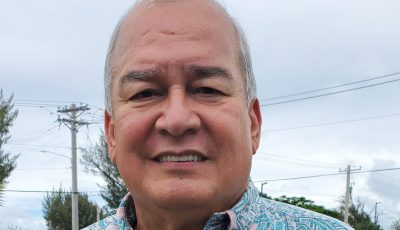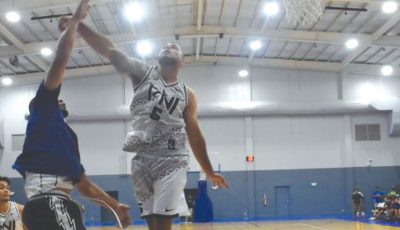Suit seeks to resume cockfighting in NMI
A former CNMI representative has filed a complaint against the United States and is seeking relief in the form of a judgement that would ultimately lift the U.S. law prohibiting cockfighting in the CNMI.
Former representative Andrew Sablan Salas has filed a complaint with the U.S. District Court for the NMI against the United States of America over the Agriculture Improvement Act of 2018, specifically section 12616, which ultimately prohibited cockfighting in the CNMI.
Salas, through his lawyer, Joseph Horey, wants the court to issue a judgment declaring that a specific section of the Agriculture Improvement Act that effectively banned cockfighting in the CNMI is not applicable to or effective in the Northern Marianas.
Salas was referring to Section 12616 of the AIA, which amended article 7 of the U.S. Code, subsection 2156 (7 U.S.C. § 2156), thereby deleting language that exempted the CNMI and other specific U.S. territories from the prohibition of cockfighting.
Salas, who was a member of the 13th CNMI Legislature, also wants the court to issue an injunction prohibiting the United States and its agents from enforcing section 12616 of the AIA or 7 U.S.C. § 2156 in the Northern Mariana Islands.
Cockfighting has been prohibited by state law in all 50 states of the United States and in the District of Columbia since 2008.
Section 12616 of the AIA, which was implemented on Dec. 2019, only impacted Puerto Rico, the Virgin Islands, Guam, American Samoa, and any other territory or possession of the United States.
“The title and legislative history of Section 12616 of the AIA show that it was enacted for the specific purpose of ‘extending [the] prohibition on animal fighting to the territories.’ Section 12616 of the AIA went into effect on December 20, 2019. Prior to December 20, 2019, cockfighting in the CNMI was lawful and regulated,” he said.
Horey argued that based on the Covenant, the people of the Northern Mariana Islands have the right of local self-government and “will govern themselves with respect to internal affairs in accordance with a constitution of their own adoption.”
Because cockfighting is an “internal affair,” Horey said the CNMI should be allowed to determine for itself whether to prohibit the sport or not.
“The question of whether a given act of federal legislation is consistent with the aforesaid self-government guarantee is determined by balancing the federal interest to be served by the legislation at issue against the degree of intrusion into the internal affairs of the Northern Mariana Islands. Cockfighting, a traditional local recreational activity having no relation to foreign affairs or defense, is a quintessential ‘internal affair’ of the Northern Mariana Islands,” he said
Horey said his client, who also served as a CNMI Commerce secretary from 2004 to 2006, has been regularly and actively involved in the sport of cockfighting since childhood and wants to resume the sport.
“He has raised hundreds of roosters for cockfighting purposes, and regularly entered such roosters in competitive cockfights in the CNMI for many years prior to 2019. Plaintiff desires and intends to resume raising roosters for cockfighting purposes, and entering such roosters in competitive cockfights in the CNMI. However, if he does so, a credible threat exists that he will be prosecuted for violation of law, particularly 7 U.S.C. § 2156, which provides that ‘[i]t shall be unlawful for any person to knowingly sponsor or exhibit an animal in an animal fighting venture,’ to include cockfights,” he said.



























